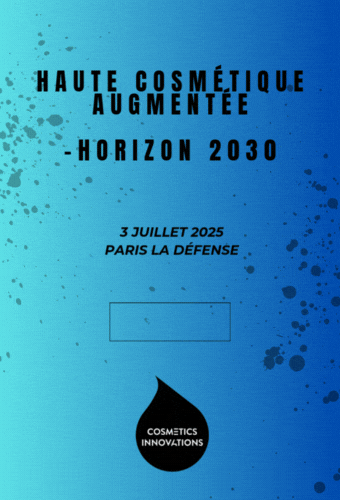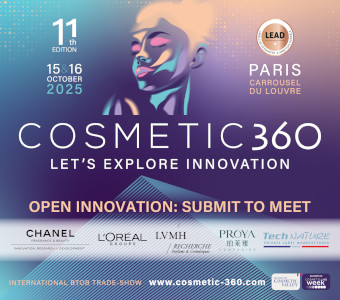Initially specialized in skincare essentials, the brand based in Hangzhou, near Shanghai, took a strategic turn in 2019 when it launched the Black Sea Salt Bubble Mask, now a bestseller with monthly sales above a million units on the Tmall platform. Then, it was equally successful with the Ruby Lightening Serum and the Double Youth Essence.
By limiting launches to two products per year, the brand highlights its sophisticated ingredients, like red algae extracts, peptides, and retinol. Proya believes that in the cosmetics industry, success will now depend on the power of research: they recently announced the opening of their own R&D centre.
Science, innovation and marketing
“Proya catches the new consumer trend: it is very popular among the Chinese ’ingredients party’ consumers, the ones who focus on formulations, as it has strong scientific ingredients and perfect product formulas. It also plays with the China pride, for example by taking part in the Harper’s Bazaar campaign ‘The brilliant Chinese ingredient’”, explains Juliette Duveau, co-founder of consulting agency The Chinese Pulse, specialized in modern China’s trends, confirming that Proya has very strong R&D capability and an independent laboratory.
To her, “ Proya is a pioneer in creating new skincare concepts : because VC and VA are irritating for sensitive skin, overseas brands have not made them the focus of their efforts. However, Proya has become the pioneer of the concept of ’anti-oxidation + anti-sugar at the same time’ and is the leader of ’morning VC night VA skincare’ concept,” explains Juliette Duveau.
Likewise, as far as marketing is concerned, “Proya catches new marketing trends quickly: it is one of the earliest beauty brands that started to be active on social media e-commerce => start live-commerce, and expand on the new emerging Chinese social platforms: RED, Douyin, Tmall, JD.COM, VIP.COM, etc.”
In addition, its communication campaigns stand out, while emotionally resonating in young people and women. Without ever putting a product forward, they convey committed messages, like the viral video broadcast during the 2021 Woman’s Day, which pointed at sexist stereotypes. The campaign slogan, “genre is not a limit, prejudices are” (#性别不是边界线 偏见才是#), was seen more than 300 million times on Weibo.
Empathy seems to be the common theme of these ad campaigns that screen the Chinese society. After the summer 2022, the brand launched an awareness campaign against school harassment in collaboration with China Education Television. Not long before that, for the romantic celebration called Qixi, Proya chose to support the many Chinese single people who have to cope with family and society pressure to find a partner. With the slogan “dare to love, dare not to love” (#敢爱也敢不爱#), the brand clearly differentiated itself from other brands’ many set launches.
Hardly impacted by the economic conditions
“The reason for this success is a combination of 3 axes: product + marketing + communication,” says Juliette Duveau. The brand, which has been listed on the Shanghai stock exchange since 2017, increased its turnover by 36.9% in the first semester 2022, reaching 2.6 billion RMB (372 million euros): it is one of the most profitable brands in the industry, according to Chinese news website 36Kr.
The website specialized in finance highlights that this performance is all the more remarkable that “the Chinese cosmetics market is under pressure, shaken by the control of the Covid pandemic and the fact that logistics were put on hold in certain areas”. According to 36Kr, Proya’s resistance is due to a high proportion of its sales being achieved online, mainly through Tmall, Douyin (TikTok), and Jd.com. From 2018 to 2021, Proya’s online share rose from 43.6% to 85.4%.
In terms of positioning, “Proya is a mid-range brand (200-400 RMB) and remains affordable for most students and young graduates, especially during shopping festivals and in live-commerce,” explains Juliette Duveau. Its success is due to highly efficient products combined with reasonable prices – a winning strategy on a Chinese high-end market still dominated by Western brands.








































